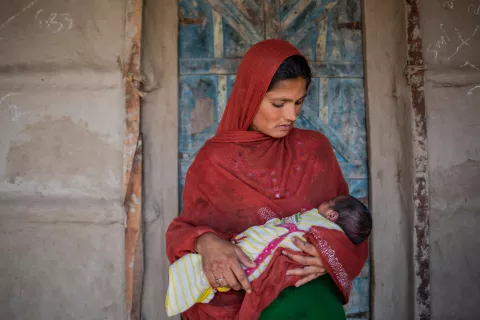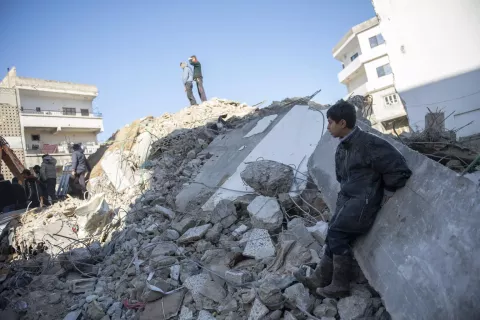More than 1 million children affected by drought in Kenya
NAIROBI, Kenya, 2 March 2017 – The onset of a severe drought in 2016 has hit arid and semi-arid regions in Kenya, affecting over 2.7 million people. UNICEF is supporting the Government of Kenya in initiating and implementing emergency response efforts by delivering life-saving assistance to affected households, strengthening coordination activities, assisting in monitoring of vulnerable groups and in advocacy.
The hardest hit counties by the drought are Baringo, Garissa, Isiolo, Mandera, Marsabit, Samburu, Tana River, Turkana, and Wajir. The latest figures as of the end of February show that 2.7 million people are in need of Water, Sanitation and Hygiene (WASH) assistance, 1.1 million children are food insecure, while over 100,000 children under 5 are in need of treatment for severe malnutrition. An additional 174,000 children are out of school as a direct result of the drought.
While making a call for international support, the President of Kenya, Uhuru Kenyatta, recently declared the drought a national disaster. UNICEF is working alongside humanitarian partners such as the United Nations Office for the Coordination of Humanitarian Affairs (UN-OCHA), WHO, WFP, the Kenya Red Cross Societies and other Non-Governmental Organizations. As the sector lead for Nutrition, Education, Child Protection and WASH, UNICEF is scaling-up sectoral coordination and enhancing technical and financial support and life-saving supplies to government and implementing partners.
The Representative of UNICEF in Kenya, Werner Schultink says, “Our efforts should not only alleviate the current suffering brought about by this emergency, but should also aim to build the resilience of families and the capacity of local governments to deal with future droughts and other calamities.”
Through partnerships with key stakeholders, children in 23 arid and semi-arid land (ASAL) counties are continuing to benefit from nutrition preventative and treatment services, healthcare, WASH interventions, education and child protection services. By January of 2017, UNICEF had dispatched 12,000 cartons of essential Ready to Use Therapeutic Foods for the treatment of 12,000 severely- malnourished children.
In addition, to enable access to water, county governments across the country are being supported to rehabilitate broken down boreholes as households are provided with water purification commodities as well as soap and jerricans. So far over 90,000 children under 5 years, including breastfeeding mothers are receiving medical services as a result of medical supplies reaching health facilities in time.
UNICEF is committed to reaching all affected children and their families by supporting the scaling-up of Government-led response mechanisms to counter the diverse and devastating effects of the ongoing drought in Kenya.
###



